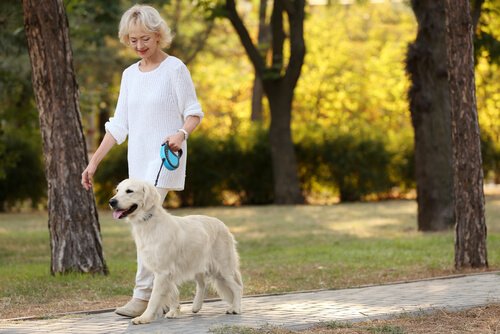A Pet's Company Reduces Loneliness

It’s common for physicians or family members to recommend a senior citizen to adopt a dog or cat. It’s not a crazy idea because the pet’s company helps reduce loneliness, among other things.
A pet’s company alleviates loneliness
Older adults usually spend a lot of time alone, and that leads to depression and a sedentary lifestyle. For that reason, an elderly person should adopt a pet as long as he/she is capable of taking care of it.
Having a pet at home will improve an elderly person’s mental health, combat stress, and make them feel useful. That’s because they must commit to providing everything the pet needs. Also, animals can help a person cope with the loss of a spouse.
The company of a pet also helps them socialize more. When they go for a walk, a dog draws attention from other people (neighbors or bystanders). They might at least hold a short conversation with someone on the street. Also, they can even be part of a group of pet owners who always hang out at the same time.
Believe it or not, relationships of people who are similar in age or like the same things is very beneficial. They form couples or close friendships, all thanks to walking the dog and taking them to the park every day.

At the same time, this simple habit makes an owner dress better, groom themselves, and take better care of his physical appearance when going out. This is certainly a good thing, both for the senior citizen and their relationships with others.
Relationships outside the home are what many older adults lack. They don’t leave the house that much, and when they do, they return quickly.
A pet’s company: don’t be shy, adopt one!
It’s also a good idea for senior citizens who live alone to adopt a pet, no matter how old they are. Dogs and cats are the best way to defeat loneliness.
One of the main problems in cities is indifference. That affects us because humans are mammals that need contact with others, just like our cousins the primates.
Depression because of the lack of having a companion, or because children have grown up and left home, harms adults between 40 and 60 years old, right before they retire.

That’s why it’s recommended to have a pet as a source of companionship. There’s nothing better than coming home after a long tiring day at work to see someone waiting for you, wagging their tail with joy, jumping around and playing.
It doesn’t matter that animals don’t talk– they don’t need to. They understand everything that happens around them. They’ll be the first to snuggle up by your side if they notice you feel bad, sad, or sick.
It’s true that a dog can’t make soup or tea when you have a fever. However, they’ll stay by your side as long as necessary. Also, the fact that the animal is there will be what gives you the strength to recover and get out of bed.
A pet is a pure-hearted being that loves their owner unconditionally. They will never leave you. They are grateful for being adopted and they’ll do anything for their owner (even cook, if they could). So many people find that a pet’s company is exactly what they need at home.
So, if you live alone — for whatever reason — don’t hesitate to adopt a pet. They’ll be your ally and partner for many years. And in return, they’ll want just a little love and food!
All cited sources were thoroughly reviewed by our team to ensure their quality, reliability, currency, and validity. The bibliography of this article was considered reliable and of academic or scientific accuracy.
Hernández, M. F. M., Dios, R. G. H. de, & Suárez, M. Z. (2017). Vulnerabilidad, protección y asistencia social en el adulto mayor en México. REVISTA DOXA DIGITAL.
This text is provided for informational purposes only and does not replace consultation with a professional. If in doubt, consult your specialist.